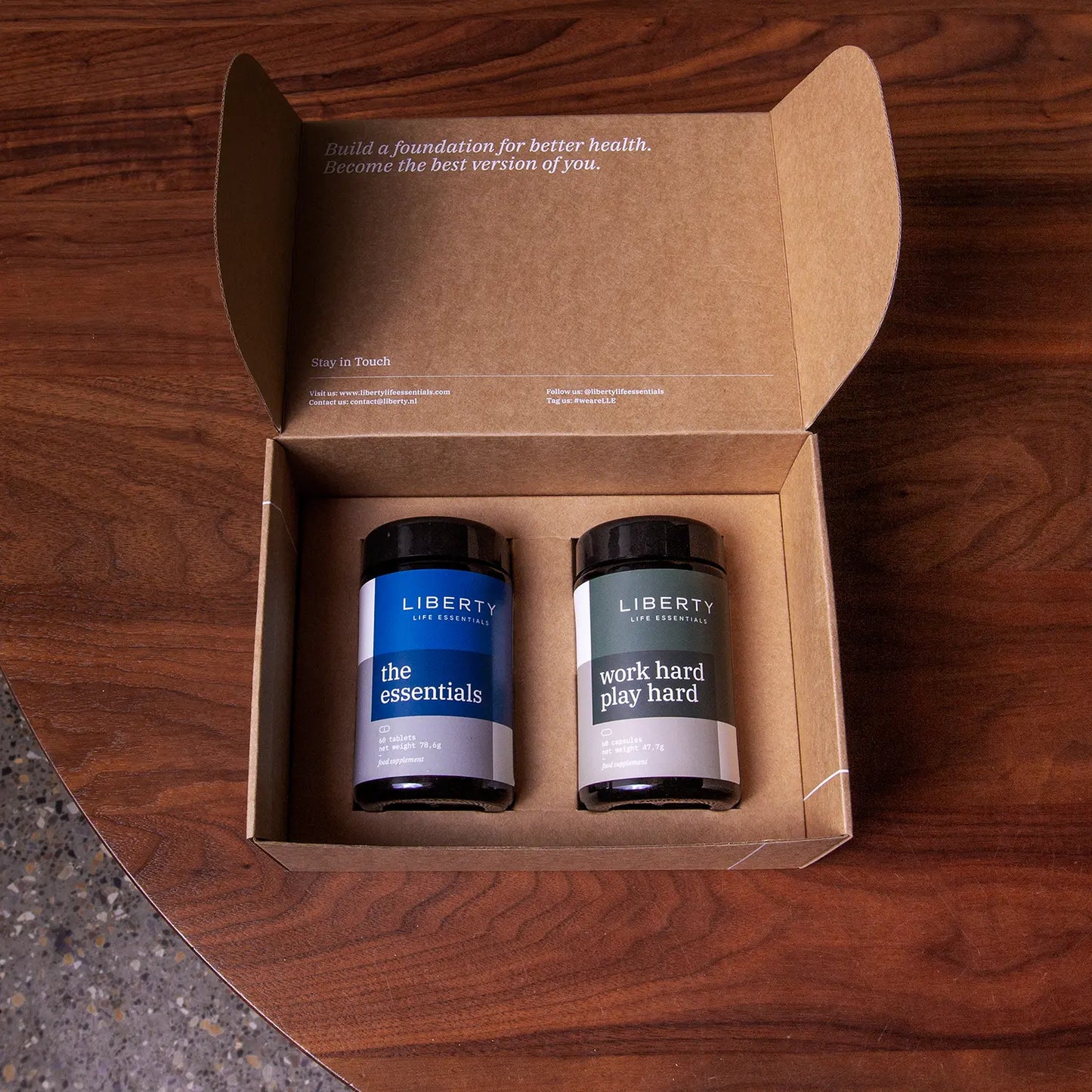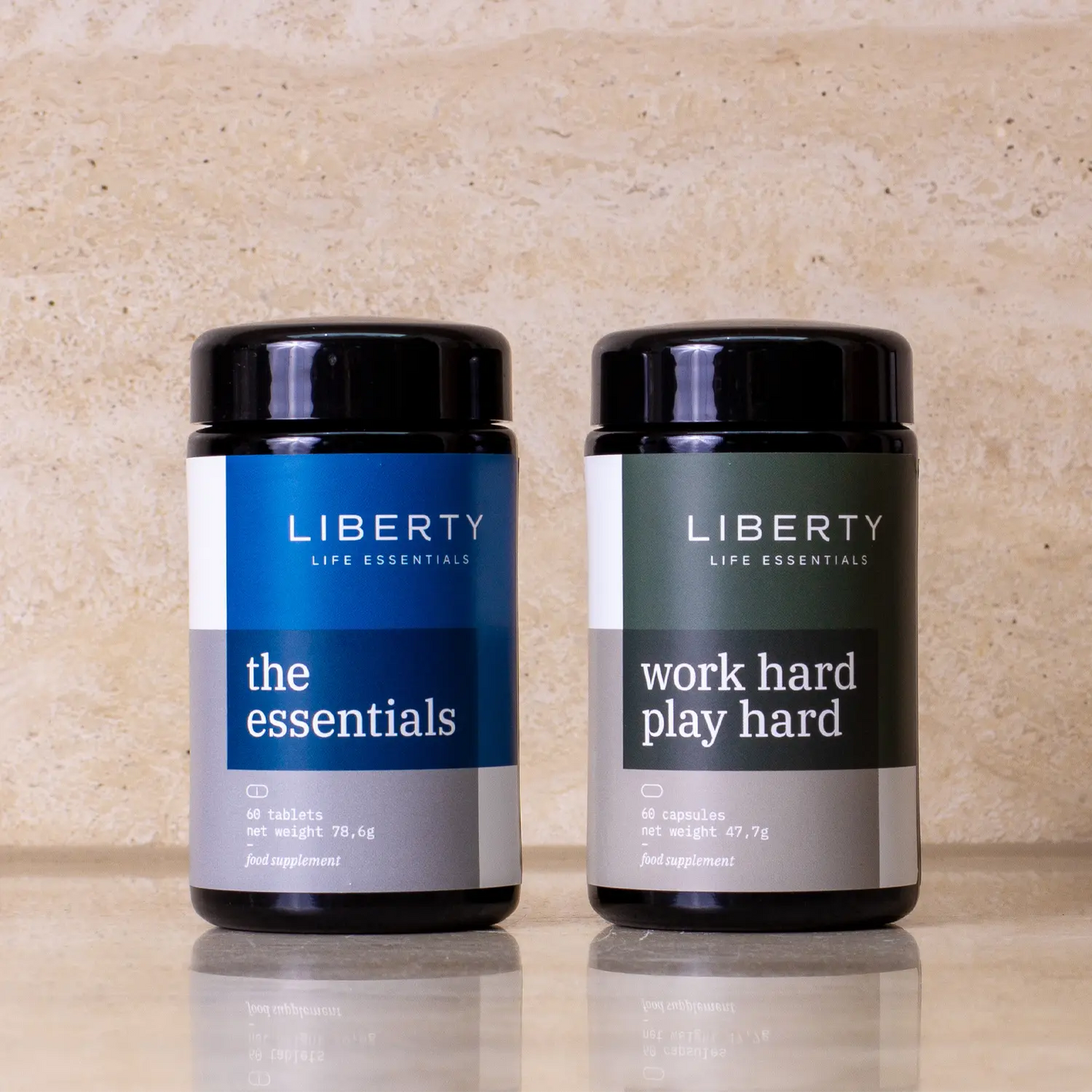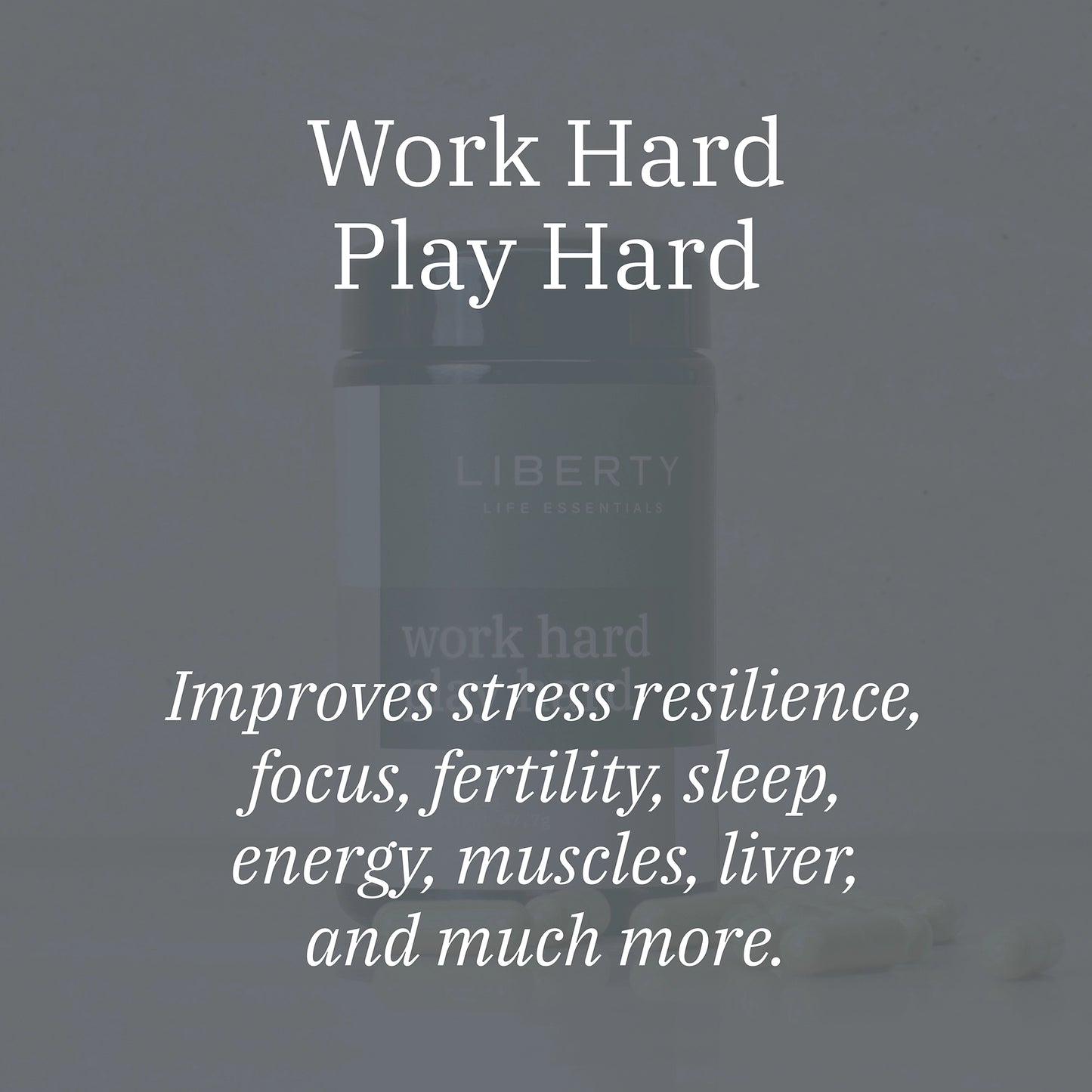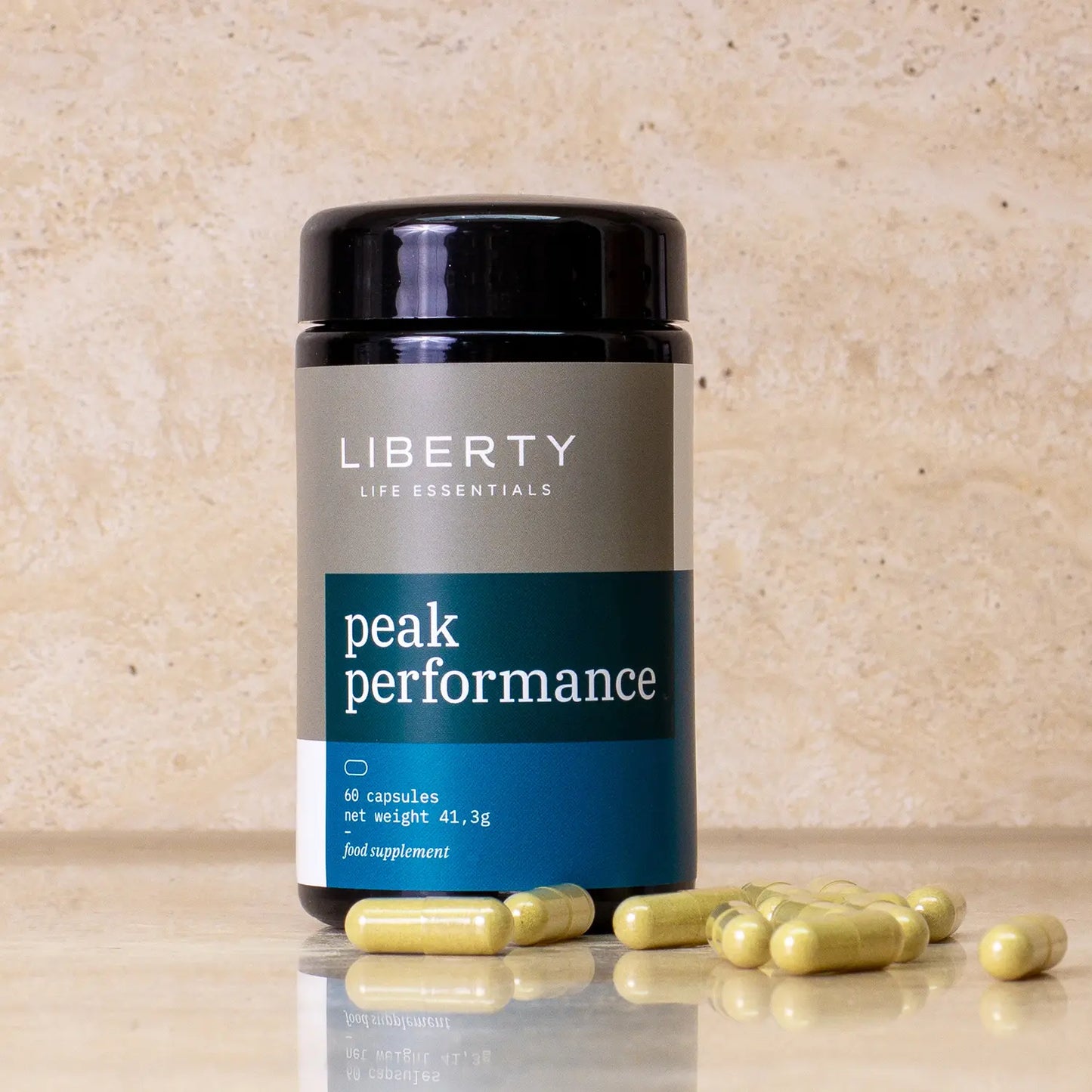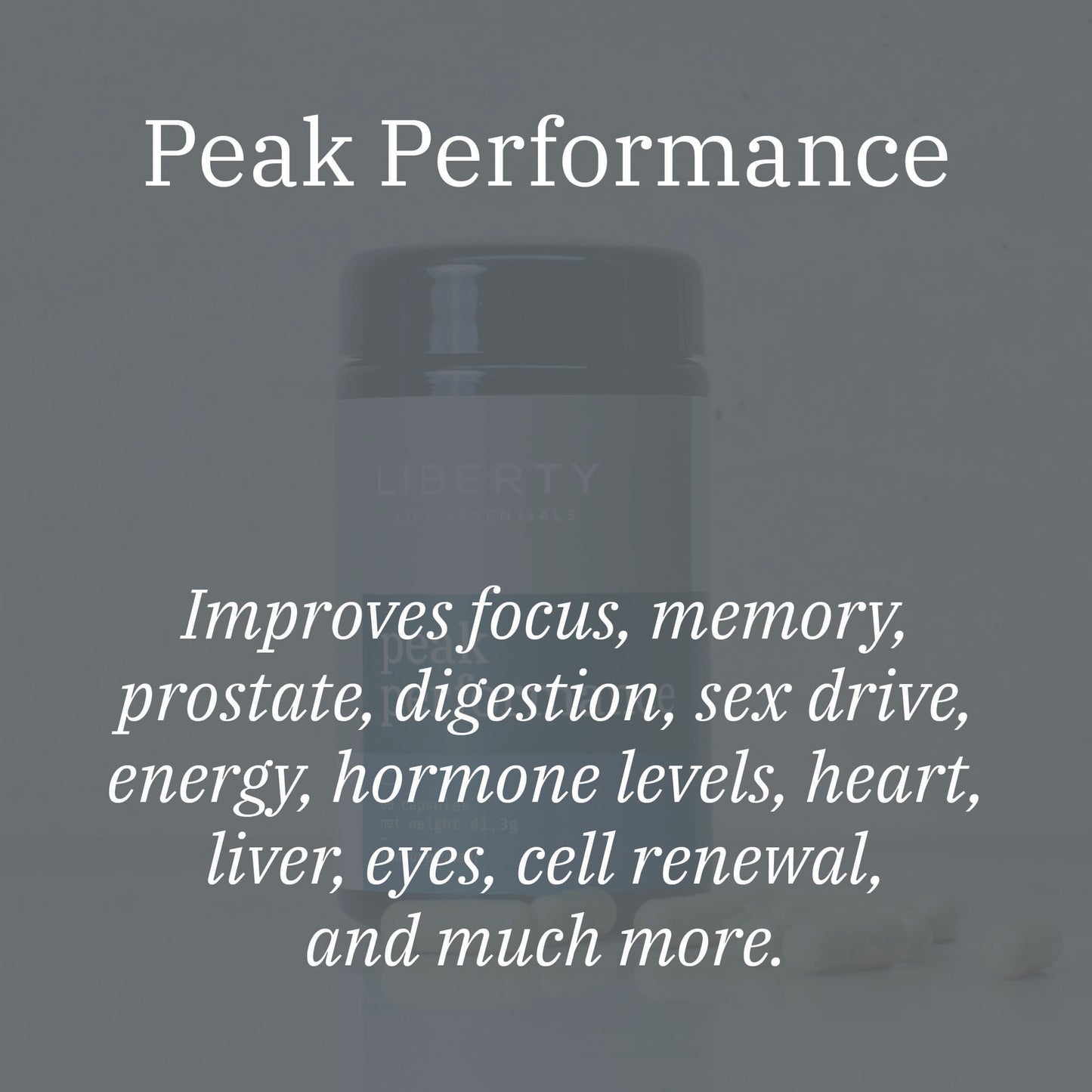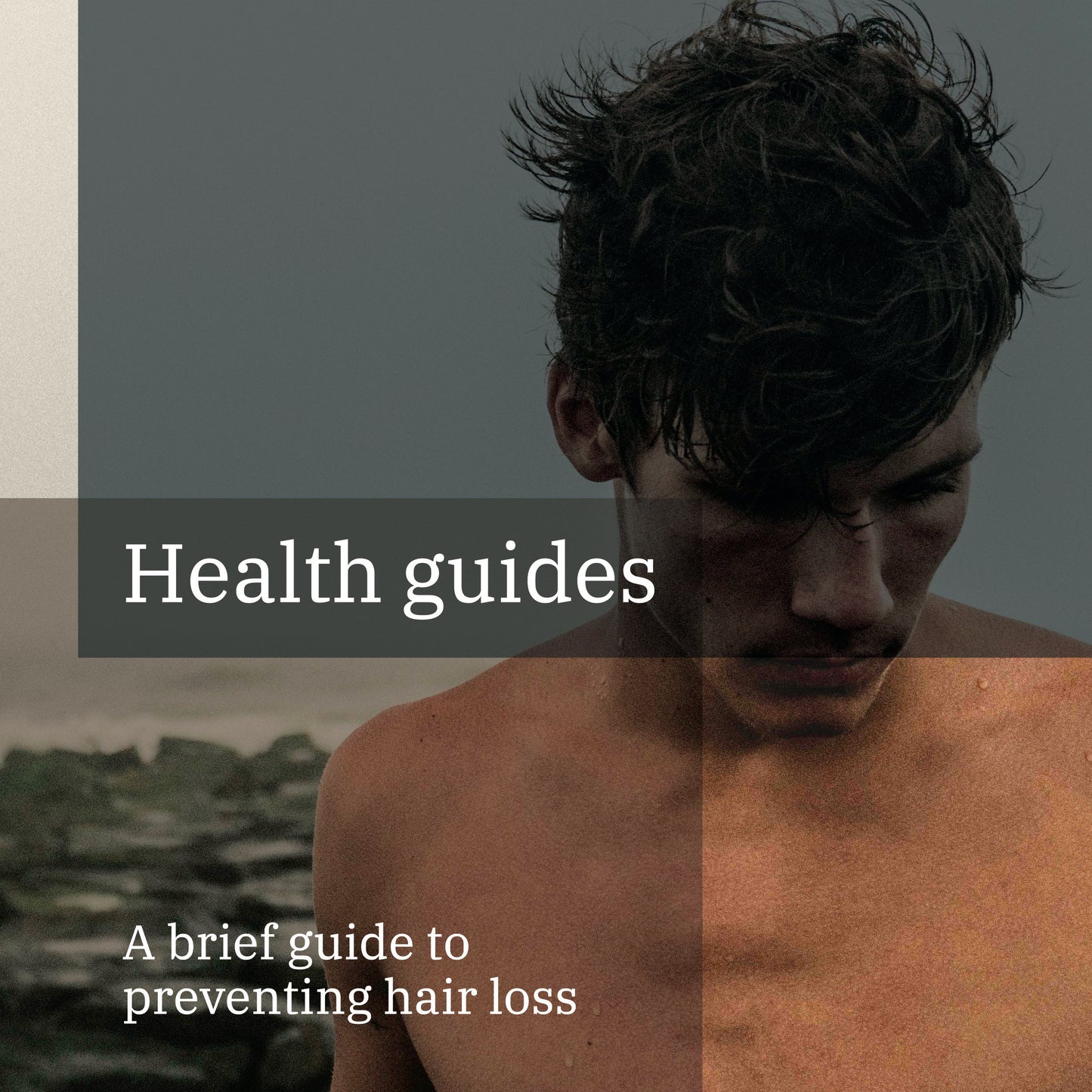
In het kort
- Tegen de 50 is de kans op haarverlies onder mannen 88%.
- De meest voorkomende oorzaken zijn erfelijk haarverlies, overproductie van het DHT-hormoon (een bijproduct van testosteron), mentale en fysieke stress, blootstelling aan overmatige hitte, en de andropauze/mannelijke menopauze.
- We kunnen haarverlies beperken of zelfs voorkomen door onze stressniveaus te verlagen, het gebruik van verhitte stylingtools zoals een föhn te minimaliseren, onze testosteron niveaus in balans te houden, en een gezond dieet en levensstijl na te streven.
- De beste voedingstoffen en supplementen voor het verminderen van haarverlies zijn:
1. Bamboe Silica;
2. Folaat / Foliumzuur;
3. Selenium;
4. Koper;
5. Testosteron balancerende voedingsstoffen zoals Taurine, Zaagpalm / Saw Palmetto, Zink, Borium en Ashwagandha.
Het hele verhaal
Haarverlies is een bron van onzekerheid waar veel mannen mee te maken krijgen. Hoewel het ook vrouwen kan treffen, heeft haarverlies voornamelijk invloed op mannen. Rond ons 35e is de kans op haarverlies bij mannen maar liefst 66%, wat stijgt naar 88% tegen de tijd dat we 50 jaar oud zijn. In deze Health guide benoemen we de meest voorkomende oorzaken van haarverlies bij mannen, veranderingen in ons dagelijkse routine om haarverlies te verminderen of zelfs te voorkomen, en een overzicht van de meest relevante voedingsstoffen en supplementen die we kunnen nemen om ons haar van binnenuit te ondersteunen.
Wat zijn de meest voorkomende oorzaken van haarverlies bij mannen?
Erfelijk haarverlies: De meest besproken oorzaak van haarverlies bij mannen is erfelijk. Er wordt vaak gezegd dat we de haarlijn erven van de opa van onze moeder’s kant. Dit komt omdat het gen dat erfelijke kaalheid (“klassieke mannelijke kaalheid” of Alopecia androgenetica genoemd) veroorzaakt zich op het X-chromosoom bevindt, dat mannen altijd van hun moeder erven. Omdat “klassieke mannelijke kaalheid” echter slechts één van meerdere oorzaken van haarverlies is, is deze verklaring te simplistisch. Helaas is er geen directe remedie voor erfelijk haarverlies, maar we kunnen ons haarverlies wel beperken door de oorzaken die we wel kunnen beheersen positief te beïnvloeden.
DHT (DiHydroTestosteron): DHT is een hormoon dat wordt geproduceerd in de teelballen. Het is een afgeleide van testosteron en actief betrokken bij typische mannelijke kenmerken: gezichts- en lichaamshaar, een diepere stem en spiergroei. In te hoge hoeveelheden kan DHT een negatieve invloed hebben op de groei van hoofdhaar, omdat het de haargroeicyclus vermindert en haarzakjes op de hoofdhuid doet krimpen. Een overmatige productie van DHT is deels erfelijk, een gevolg van een onstabiele testosteronspiegel en veroorzaakt door overmatige eiwit/proteïne consumptie (wat deels de oorzaak is van haarverlies bij fitnessliefhebbers).
Stress: Nog steeds afgestemd op het jager-verzamelaarsleven van onze voorouders, is stress een lichamelijke reactie die onze zintuigen verscherpt in geval van gevaar. Dit gebeurt door de energietoevoer naar minder cruciale delen van het lichaam te verminderen. Tegenwoordig wordt stress eerder veroorzaakt door alles wat ons uit onze comfortzone haalt, zoals een hoge werkdruk of presenteren/spreken voor een groot publiek. Een stressvolle levensstijl of zelfs een enkele stressvolle gebeurtenis kan daarom "telogen effluvium" veroorzaken, een vermindering van de energietoevoer naar de haarzakjes, waardoor deze in een rustfase terechtkomen en het haar binnen enkele maanden van aanhoudende stress uitvalt.
Hitte: Als mannen maakt onze kapsel vaak deel uit van onze identiteit. Tegenwoordig besteden westerse mannen bijna net zoveel tijd als vrouwen aan het stylen van hun haar. Echter kunnen overmatige warmte van föhns en krultangen, maar ook overmatig gebruik van wax, gel en agressieve shampoos ons haar beschadigen en leiden tot dunner en beschadigd haar.
Penopauze / mannelijke menopauze: Hoewel de menopauze doorgaans meer geassocieerd wordt met vrouwen, kunnen wij mannen ook last krijgen van depressie, slapeloosheid, slechte concentratie en andere emotionele en fysieke symptomen als gevolg van sterk fluctuerende hormoonspiegels rond ons 50e. Zoals we hierboven hebben gelezen, hebben onevenwichtige hormoonspiegels directe invloed op de haargroeicyclus, wat haarverlies en dunner worden veroorzaakt. Lees hier alles over de penopauze en wat je er tegen kan doen.
Hoe kunnen we haaruitval verminderen of voorkomen?
- Verminder je stressniveau door te ontspannen via meditatie, ademhalingsoefeningen of yoga.
- Stop met roken. Roken verminderd de bloeddoorloop door je bloedvaten, beginnend bij de uithoeken, waaronder de haarzakjes. Hierdoor ontvangen je haren minder zuurstof en voedingsstoffen, wat op termijn tot haarschade en -uitval kan leiden.
- Eet gezond of slik voedingssupplementen om ervoor te zorgen dat je voldoende van de onderstaande voedingsstoffen binnenkrijgt en je testosteronspiegel in balans houdt.
- Minimaliseer het gebruik van verhitte stylingtools, gel of wax en gebruik milde shampoos.
- Hoofdmassages en essentiële oliën komen de bloeddoorloop naar de haarzakjes ten goede, waardoor deze meer zuurstof en voedingsstoffen binnenkrijgen.
Welke voedingsstoffen en supplementen helpen bij haarverlies?
Bamboo silica: Silica is een natuurlijk sporenelement dat kan helpen het haar te versterken en dunner wordend haar voorkomen door de toevoer van essentiële voedingsstoffen aan onze haarzakjes te bevorderen. (Voedselbronnen: sperziebonen, bamboe, banaan, bladgroenten en bruine rijst).
Biotine (vitamine B7): In tegenstelling tot veel claims is er geen wetenschappelijk bewijs dat een verhoogde biotine-inname een directe invloed heeft op de gezondheid van het haar. Dat betekent echter niet dat er achter de schermen geen werk wordt verricht. Biotine speelt, net als vitamine C, een belangrijke rol bij de productie van keratine, wat essentieel is voor het behoud van een gezonde huid, haar en nagels. Bovendien hebben personen met een tekort aan biotine, riboflavine (vit B2) of vitamine B12 een verhoogd risico op haaruitval. (Voedselbronnen: peulvruchten, eigeel, orgaanvlees, noten en zaden).
Koper: Draagt bij aan haarpigmentatie, helpt warmte te absorberen en beschermt het haar, de haarzakjes en de hoofdhuid tegen uitdroging en breuk. Een extra bonus is dat het je haar donkerder maakt. (Voedselbronnen: runderlever, oesters, zalm en cashewnoten).
Folaat (vitamine B9): Wordt beschouwd als een belangrijke vitamine voor het bevorderen van de algehele haargezondheid, omdat het bijdraagt aan de vernieuwing van (haar)cellen. Foliumzuur, de synthetische vorm van folaat, heeft hetzelfde effect, hoewel het minder efficiënt wordt opgenomen. (Voedselbronnen: donkergroene bladgroenten, de meeste vruchten, noten, bonen en erwten).
Selenium: Selenium kan de haargroei en -sterkte bevorderen door de haarcellen en haarzakjes te beschermen tegen oxidatieve stress. Het ondersteunt de hergroei van verloren haar tijdens of na een periode van stress. (Voedselbronnen: paranoten, orgaanvlees en de meeste zeevruchten).
Testosteron balancerende supplementen: Taurine, Zink, Borium, Vitamine D, Ashwagandha en Zaagpalm/Saw Palmetto zijn supplementen waarvan bekend is dat ze onze testosteronniveaus in balans brengen. Gebruik van deze supplementen kan met name interessant zijn bij overmatige DHT-productie of tijdens de mannelijke menopauze/andropauze.
Conclusie
Haarverlies kan vele oorzaken hebben, waarvan sommige beter te voorkomen zijn dan andere. Hoewel erfelijk haarverlies moeilijker te voorkomen is, kunnen we ons haar ondersteunen door:
- voldoende noodzakelijke voedingsstoffen binnen te krijgen;
- stress te verminderen of te ontspannen na stressvolle situaties;
- onze testosteronspiegels in balans te houden;
- ons haar en haarzakjes te beschermen tegen overmatige hitte en chemicaliën.
De meeste supplementen in dit artikel zijn te vinden in ons The Essentials product, waarmee we mannen van alle leeftijden de nutritionele ondersteuning geven om haarverlies van binnenuit te bestrijden.
Daarnaast ondersteunt ons Peak Performance (Adults) product ons terwijl we de andropause naderen. Het bevat gepatenteerde vormen van folaat (Quartefolic®), ashwagandha (KSM-66®) en zaagpalm/saw palmetto (SabalSelect®).
Combineer beide producten in onze Volwassenen Bundel en bespaar 15%!
Bronnen
- Why Do Men Go Bald?
- Assessment of the usefulness of DHT in the diagnostics of patients with androgenetic alopecia
- Can stress cause hair loss?
- Menopause Hair Loss Prevention
- How to Prevent Hair Loss: In Men and Women, After Pregnancy, During Chemo, And At-Home Remedies
- Silica for Hair: Can It Fight Hair Loss?
- The Therapeutic Effect and the Changed Serum Zinc Level after Zinc Supplementation in Alopecia Areata Patients Who Had a Low Serum Zinc Level
- Biotin for Hair Growth: Does It Work?
- Does Folic Acid Help with Hair Growth?

